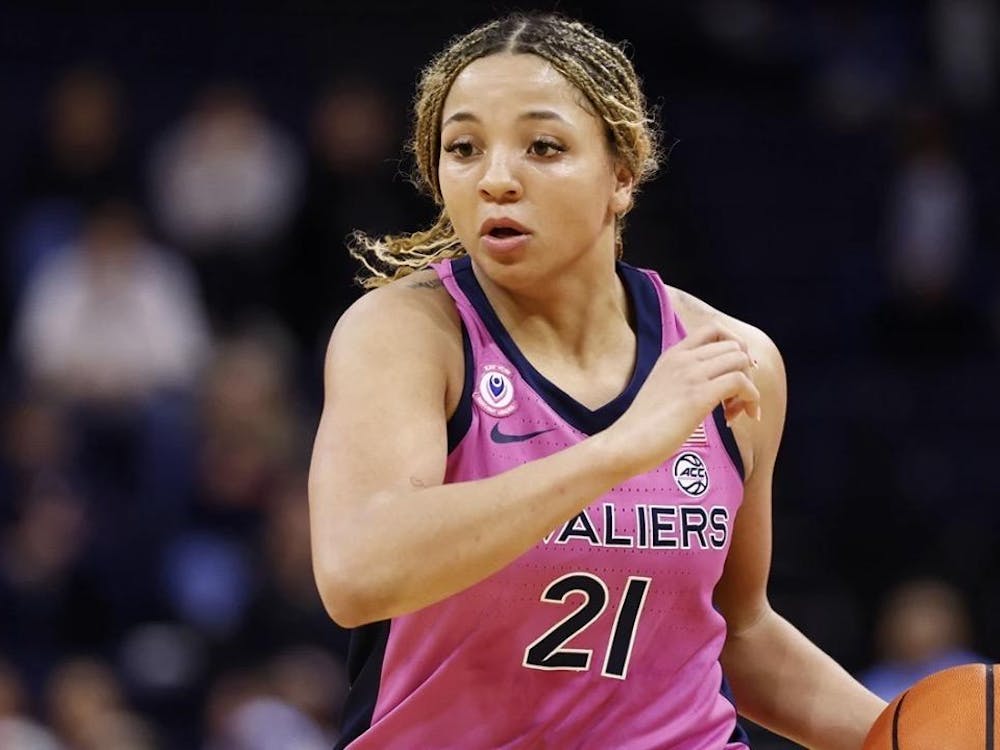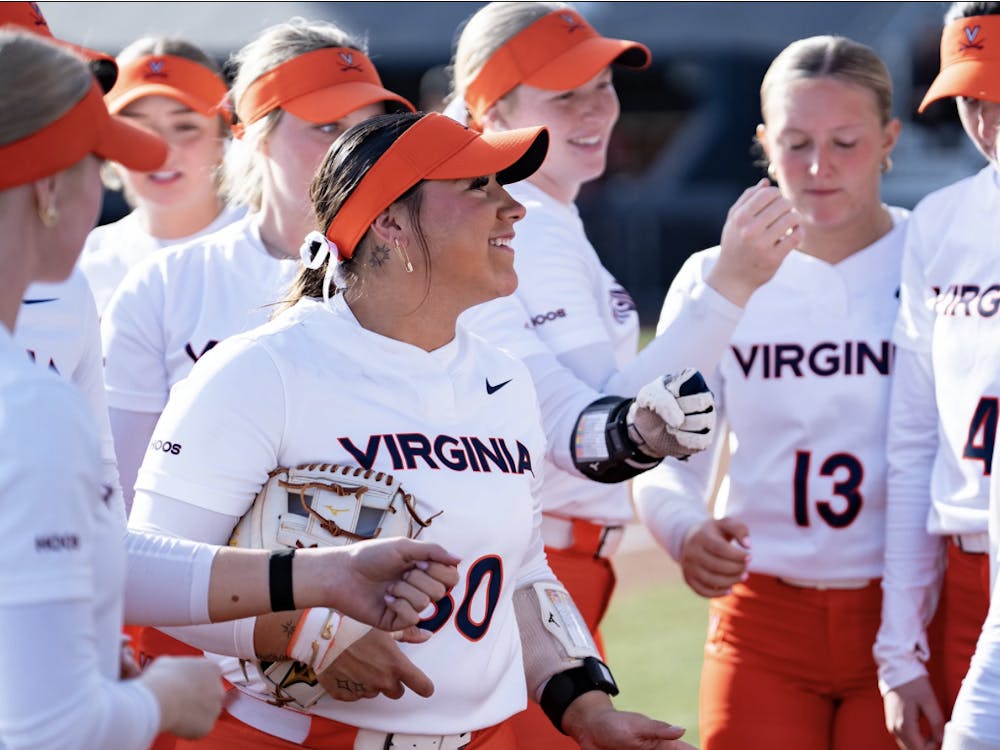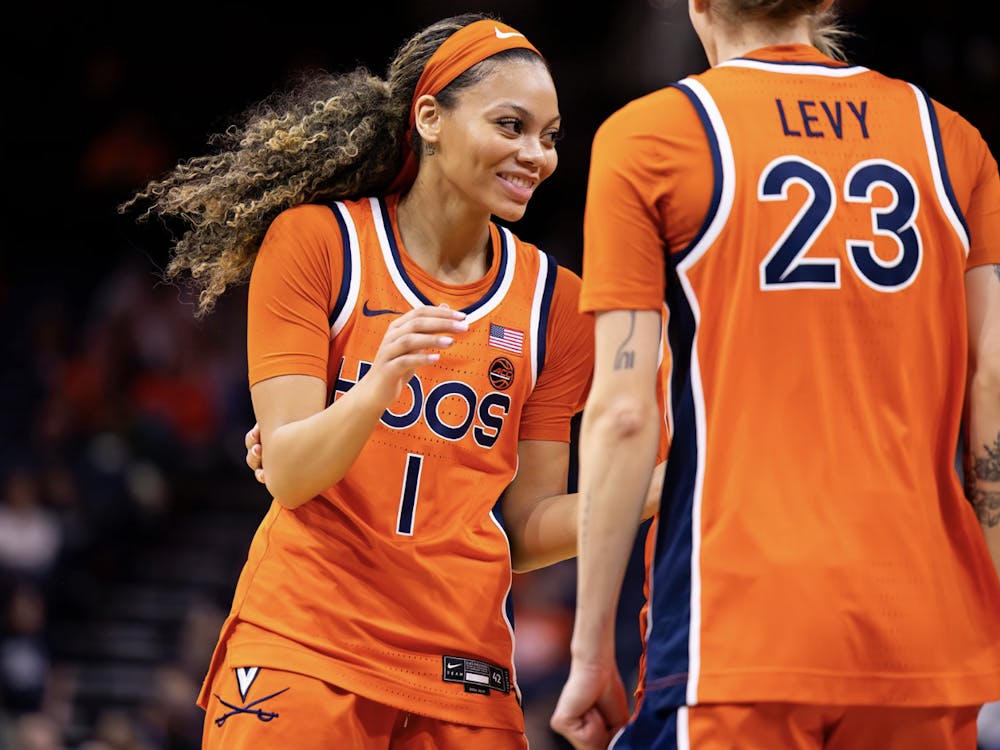As lawyers prepare to determine the fate of George Huguely, the former men's lacrosse player charged with murdering women's lacrosse player Yeardley Love, coach Dom Starsia and the men's team are moving forward with optimism that the program will not be defined by a single investigation. But some worry that the team's effort to move forward from the incident may be hindered by a change in the perception of the program.
Perhaps the best measure of how last spring's alleged murder has affected the image and future of the program will be reflected in Starsia's ability to recruit the same top-notch talent that has helped Virginia win three national titles and reach 12 final fours during his 19-year tenure.
"I would say it probably did affect recruiting, but probably in a more subtle way than people would suspect," Starsia said.
The very notion that a University student could commit such an act has caused people who know Huguely to revisit the "play hard, party hard" label that became associated with the sport during the 2006 Duke lacrosse scandal, in which three men's players were accused of rape before later being declared innocent. This kind of attention may put Starsia's program at a disadvantage as he competes with recruiters such as North Carolina coach Joe Breschi and Johns Hopkins coach Dave Pietramala for the nation's best high-school players.
The culture\nAndrew Sharp, an editor for Sports Blog Nation and Boston College graduate, witnessed firsthand the lacrosse culture in the Washington, D.C.-Maryland area - a traditional recruiting hotbed for top college programs. Sharp attended St. Albans School in Washington and traveled in similar social circles as Huguely, who went to Sharp's rival high school, Landon. Although Sharp did not play lacrosse for St. Albans, he observed the way Huguely and other lacrosse prodigies acted toward others. His critique of lacrosse culture is the result of his experience growing up in a place where lacrosse is king, and people like Huguely sit on the throne.
In the aftermath of Love's death, Sharp described in his blog the role lacrosse may have played in shaping Huguely's character. Earlier this month, he explained his experience with lacrosse culture in an interview with The Cavalier Daily.
"Much of the wealth and power in America gets passed down through generations. Growing up immersed in that sort of luxury, it's hard to find much diversity of thought among your peers, and it's pretty natural to be a little entitled," Sharp said.
Participation in the sport requires a significant financial investment - six of the country's top 10 high-school lacrosse programs are private institutions where students pay an average of $23,173 per year in tuition. Players and their families also must buy expensive equipment and have time to travel on the road.
Growing up rich and attending an expensive private school does not turn people into criminals, however. Although college often provides an opportunity for most elite private school graduates to expand their horizons, Sharp said many lacrosse players simply confirm their provincial perspectives in similar closed, homogeneous social circles when they step on campus.
"Even athletes that play football and basketball will encounter teammates from all over the country, with vastly different perspectives on life," Sharp said. "Among lacrosse teams at elite schools - most of whom draw from a pool of wealthy talent from the same regions every year - that's not always true."
But others note that it is common for any student to associate with others from a similar background, and it may be unfair to single out lacrosse players for this behavior.
The alleged murder is not the only incident that worries Sharp. In the aftermath of the incident, The Washington Post reported that eight of the 41 players on the Virginia men's lacrosse team - nearly 20 percent of the roster - had been charged with alcohol-related offenses during their careers at Virginia. The charges include underage alcohol possession, using a fake ID and driving while intoxicated. By comparison, the Post reported, only two Maryland players and one Georgetown player had charges.
The figure is also magnified by the fact that it appears Virginia men's lacrosse players have been charged with alcohol-related offenses at a far greater rate than the general student body. University Judiciary Committee data from spring 2008 to spring 2009 indicates that 175 of the total 13,947 undergraduate students at the University had alcohol-related offenses - a mere .01 percent. The comparison, of course, is not perfect - for example, the lacrosse offenses occurred during a four-year period.
Susan Bruce, director of the University's Gordie Center for Alcohol and Substance Education, said a forthcoming NCAA study indicates that 17 percent of student-athletes never use alcohol, compared to 15.7 percent of non-athletes. Those student-athletes who do drink, however, drink more often than non-athletes and are more likely to engage in risky behavior such as driving under the influence, Bruce said, adding that they are more likely to endorse the "work hard, party hard" ethic.
"I think that the sport ... can serve as an incubator for behavior that can be pretty destructive," Sharp said. "Whether it's depression, anger or substance dependencies, I think it's important to think about what role lacrosse culture played in either burying those problems - until they boiled over - or exacerbating them. It's not to say it could only happen with lacrosse, but, 'this could have happened to normal students' isn't a good enough reason to dismiss lacrosse as a potential factor."
Nevertheless, Sharp emphasized that he knows several players who have broken the mold and carried out healthy college lifestyles. Still, he believes lacrosse culture should be reexamined by all involved in the sport.
"I would say that lacrosse should be a part of the conversation," St. Albans coach Malcolm Lester said. "Does that mean lacrosse is to blame for [those] various ills? It's hard to say, but again, it is worth discussing."
Steve Stenersen, president and CEO of U.S. Lacrosse, rejects the notion that lacrosse fosters the kind of behavior Huguely partook in.
"Nobody is immune to inter-partner violence," he said. "That is a situation that is certainly not limited to lacrosse - it is widespread across our society."
Richard Lapchick, director of the Institute for Diversity and Ethics in Sports, echoed that sentiment. Since the early 1990s, he has studied the relationship between athletes and sexual assault and claims that athletes are not disproportionately represented among sex offenders.
College coaches, meanwhile, insist that although lacrosse players engage in social activities, their behavior is not much different than that of typical college students.
"I think you'll find lacrosse players across the board are pretty average young men in that respect," Duke coach John Danowski said.\n\nFollowing Duke's path?\nNearly five years ago, the Duke lacrosse scandal shook the sport to its bones. The Duke case is different from Virginia's in many ways - more than one person was charged with a crime; all those charges were dismissed; and racial overtones made the scandal even worse in the public eye. In both cases, however, the sport was brought under severe scrutiny, particularly in regard to substance abuse. After three Duke players were charged with rape, reports emerged that 15 players - about one-third of the team - had faced prior alcohol-related charges.
The perception of Duke lacrosse changed dramatically. After coach Mike Pressler was forced to resign, Danowski was introduced as the new head coach. Even though he was given a blank slate, he said, recruits still turned away. His first recruiting class was not ranked in Inside Lacrosse's top-10 list.
Danowski said the scandal likely affected his recruitment efforts.
"I can't say for sure that I know of anyone in particular [who turned away], but I gotta believe that there was," he said. "I gotta believe there were people who said, 'We're not even gonna look that way.'"
In fact, of the seven players offered scholarships for the 2007 Duke freshman class, four opted out of their commitments, including former Virginia All-American Ken Clausen.
Virginia, on the other hand, kept every commitment after last spring's alleged murder, and Starsia has recruited top talent for next year's class. Ryan Tucker, a midfielder at Gilman High School in Maryland, may be the most heralded of the class. Gilman coach Brooks Matthews, who also coached current Virginia sophomore defenseman Harry Prevas, said the incident has not damaged Virginia's reputation.
"I don't think that kids are looking any less at U.Va.," he said. "U.Va. is a place that recruits you. You don't recruit U.Va."
Lester, who is sending defenseman Albert Kammler to Virginia in the fall, said he would have been less likely to send a recruit to Virginia if the program handled Love's death in the wrong way. Specifically, if the athletic department or lacrosse team had become insular or defiant about the alleged murder, he would have had misgivings about Virginia.
"There was a lot of transparency," Lester said. "I think that particular situation - it's hard not to look at it and say it was an isolated incident."
A work in progress\nPerhaps the strongest defense Virginia may have against negative perception of the program is its head coach. Five prominent coaches or figures in the lacrosse community interviewed for this story said Starsia's reputation as a leader will protect the program from decline in the wake of the alleged murder.
Danowski said Starsia's reputation as a family man, his tremendous amount of success on the field and the fact that his players appear to love him will help Virginia move forward.
"They love their style of play, the fact that they're successful [and] they love their university," Danowski said. "All those things combined, that's not gonna go away."
Although Athletic Director Craig Littlepage acknowledged that rumors surfaced concerning Starsia's job security, he said he never considered firing the coach. Rather, Littlepage said Starsia received a great deal of support from the administration, players, alumni and parents.
Littlepage said he did not feel the need to provide reassurances to recruits that the program was stable.
"I never felt there was vulnerability with our program's standing with prospective student-athletes," Littlepage said in an interview. "Our program is defined by what it has achieved over the previous 20 or so years. Coach Starsia's history, his team's success and his handling of a wide range of situations at U.Va. are the best indicators of what he is about as the leader of our program and as an educator."
Starsia did touch base with his players and incoming recruits after the tragedy but said such communication was nothing out of the ordinary.
In that same vein, Landon coach Rob Bordley, who coached Huguely in high school, said the alleged murder has not fractured the school's relationship with Virginia.
And if the Duke case is a true parallel, it is worth noting that Danowski transformed his program from a public pariah in 2006 to a championship team in 2010.
Still, the grieving process has not entirely subsided for Virginia lacrosse players. The men's head coach is no exception.
"There's no easy answer here, no easy solution," Starsia said. "Coaches are notorious for saying everything's a work in progress ... for us emotionally, in a lot of different ways, this is clearly a work in progress"






